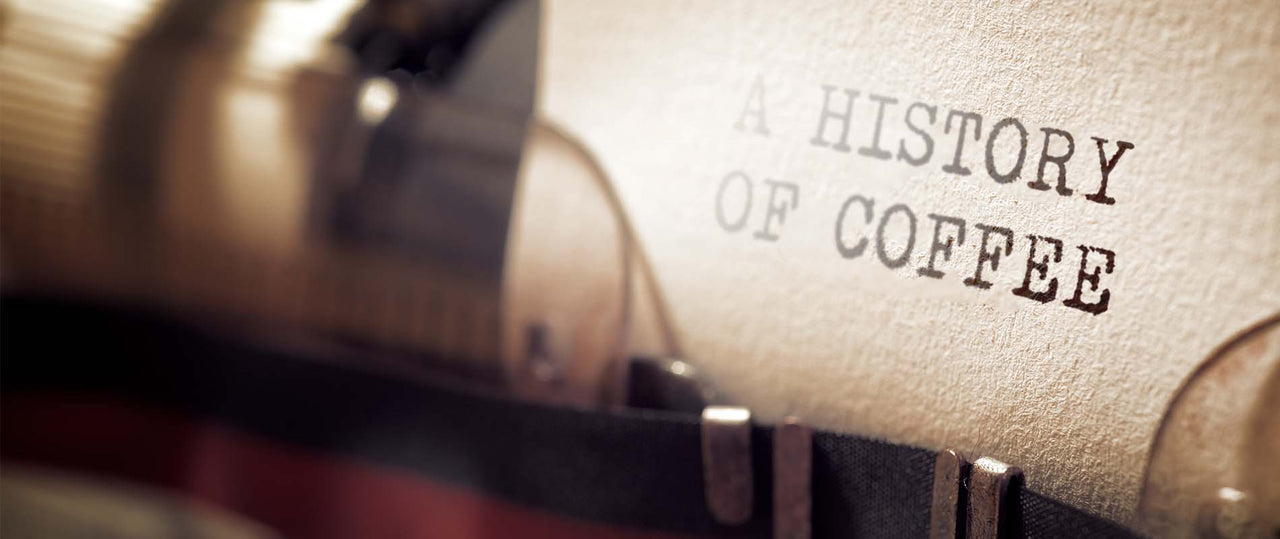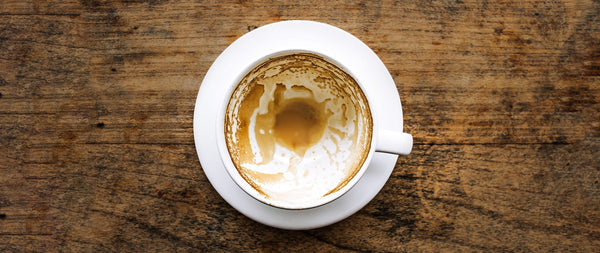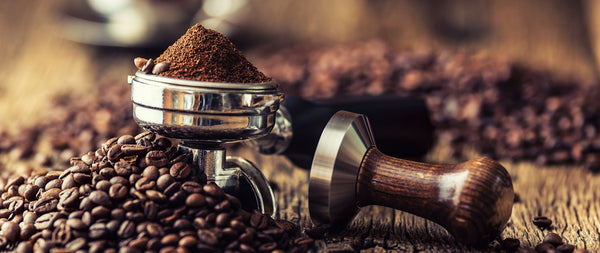A history of coffee is a rich and textured one, replete with adventure, intrigue, and – most importantly – caffeine.
Now, we're not talking adventure and intrigue in a 'keep you on the edge of your seat' action movie way. Rather, from its humble origins in the Arabian Peninsula to its current status as a global commodity, coffee has always been a drink that stirs passion.
Let's take a closer look at the fascinating story of this beloved beverage.
Who First Invented Coffee?
The ancient Ethiopians first invented coffee. The coffee plant was harvested and then roasted before being ground up and brewed into a drink. This tradition was then taken to Arabia, where it quickly became popular. Eventually, coffee made its way to Europe, rapidly gaining popularity due to its caffeine content.
That's the short story.
Here's some of that intrigue. Coffee actually has a legend behind its origins. There are a few slightly different variations of the legend, but according to one story, coffee was discovered by an Ethiopian goatherd named Kaldi. On one typical day, Kaldi noticed that his goats were acting very strangely after eating the berries from a certain plant. Kaldi decided to take a few of the berries to a nearby monastery.
The monk initially disapproved of the berries; some stories claim he supposedly threw them into the fire and then smelled the captivating "coffee" smell. Nonetheless, he eventually tried them himself and found that they helped him stay awake during evening prayers. He then shared the berries with other monks, and coffee became a staple of monasteries throughout Ethiopia.

History Of Coffee Timeline
As time continued, coffee trade and cultivation took place in the Arabian Peninsula, and tourists and travelers globally were introduced to this delectable drink and gained quick traction.
Initially, there was apprehension about coffee within Europe, but concern quickly faded as more tried and enjoyed what is now one of the most popular morning beverages.
By the 17th Century, coffee was throughout Europe and entering the Americas. So, if we are to examine a coffee timeline of significant events, here's what it would look like:

Today, it's no wonder that coffee is one of the most popular drinks in the world and plays a crucial role in many cultures, with entire economies built on the coffee trade; However, coffee's original purpose was different from what it is today.
What Was The Original Purpose Of Coffee?
Once coffee was discovered, it was used for obvious reasons like aiding in concentration and focus and providing a boost in energy which helped keep one awake during long prayers. Yet, coffee was also used for medicinal purposes, as it was believed to have numerous health benefits as a treatment for various ailments such as headaches, stomach aches, and even depression.
For example, coffee contains caffeine, which is a stimulant that increases alertness and reduces fatigue. Caffeine additionally increases the release of dopamine, which is associated with pleasure. This combination of effects makes coffee a popular drink for people who need to stay awake and focused during the day, as well as the potential to improve someone's mood.
With thorough study, we also know that coffee contains antioxidants, which are compounds that can protect cells from damage caused by free radicals. These antioxidants found in coffee may help to reduce the risk of some chronic diseases, such as heart disease and cancer.
Although all of these specifics were not entirely known at the time, coffee plants were found all over the world and had their original place medicinally, especially in early Chinese medicine.
How Did Coffee Get Its Name?
Coffee got its name from the Arabian Peninsula, where coffee beans were first cultivated. The word "coffee" is thought to come from the Arabic word for wine, confirming that coffee was once considered an intoxicating beverage.
However, it's also possible that the word coffee comes from qahwah, the Arabic term for a type of strong brew made from crushed coffee beans. Whatever its origins, coffee is now one of the most popular drinks in the world!
Why Is Coffee So Addictive?
There are multiple reasons why coffee may be addictive for some people. Firstly, coffee contains caffeine, a known stimulant that can cause dependency.
Caffeine is a psychoactive substance that increases dopamine release, which is associated with pleasure. It also acts with other neurotransmitters that create a combination of effects, providing alertness and a measure of happiness.
However, caffeine can also lead to dependence and addiction. When people drink coffee regularly, they may develop a tolerance to the effects of caffeine. This means they need to drink more coffee to feel the same effects. Some people may experience withdrawal symptoms, such as headaches and fatigue, when they try to reduce their coffee intake.
Coffee drinking can also lead to changes in the brain that make it difficult to feel rested and relaxed without caffeine. Take, for instance, one study which found that people who regularly drank coffee had higher levels of cortisol, your stress hormone, in their brains. This may explain why some people feel anxious and irritable when they try to go without coffee.
So, if you're addicted to coffee, you're not alone! Caffeine is a powerful stimulant that can lead to dependency and changes in the brain.
Another reason it can be addictive is because coffee drinking can become a learned behavior – we may start associating certain times of day with having a coffee and eventually rely on it to feel 'normal' or function properly.
If you notice that you can't go without your morning cup of joe or are starting to feel like you need more and more caffeine to get through the day, it might be time to cut back. You can even start by trying our Buzz Killer Roast with only half the caff!
This is a great way to continue your morning cuppa (and maybe afternoon cuppa(s)- don't worry, no judgment here) by reducing the amount of caffeine first, making it a bit easier to transition to decaf or lessen the number of cups a day you have without withdrawal symptoms.
In Summary
Well, we'd bet you didn't expect a history of coffee to go quite like that! Coffee has undoubtedly made a grand entrance and become a global sensation. The next time you're enjoying a cup of Get Roasted coffee, remember its humble beginnings and all the history behind what it took to get to where it is today.
We're sure you found this history of coffee interesting, informative, and maybe even a bit addicting. And frankly, you probably want a hot cup of coffee right now too! Peruse our coffee collection here to find just the roast for you. Can't decide? Let us surprise you with our Roaster's Choice option, and prepare for your taste buds to soar!




